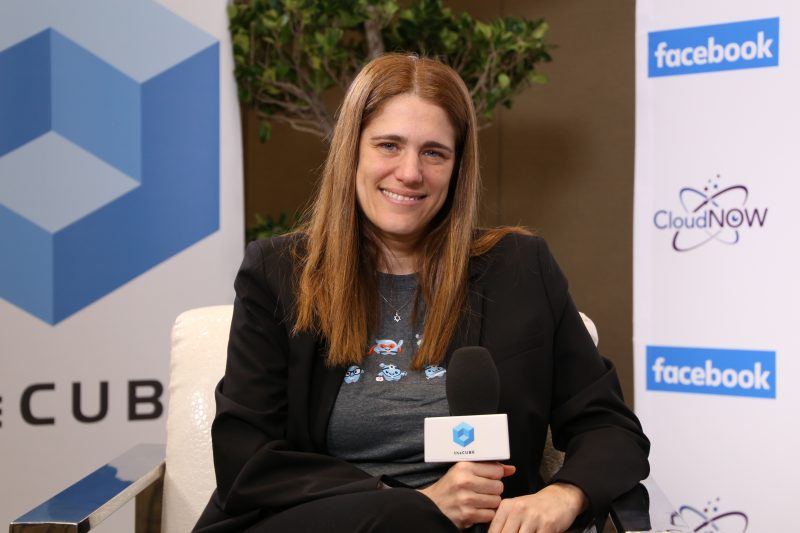 CLOUD
CLOUD
 CLOUD
CLOUD
 CLOUD
CLOUD
Application networking company Solo.io Inc. is feeling flush today after raising $135 million in a new round of funding that brings its post-money valuation to more than $1 billion.
Altimeter Capital Management led the Series C round, which also saw participation from existing investors Redpoint Ventures and True Ventures, bringing the company’s total amount raised to $166.5 million.
Solo.io’s mission is to help organizations address the challenges of integrating software containers and microservices into their information technology environments. Its flagship product is Gloo Mesh Enterprise, which provides management features for service meshes that act as a networking layer for microservices, which the components of modern applications, to communicate with each other.
Gloo Enterprise was launched into general availability in February and provides administrators with a way to track the status of their service mesh deployments, as well as security controls that regulate interactions between microservices. The platform is based on the open-source Istio project that extends the Kubernetes container orchestrator to support service meshes. Gloo also incorporates Envoy, which is an open-source service proxy.
Solo.io founder and Chief Executive Idit Levine (pictured) told SiliconANGLE that microservices connectivity is an essential component and that without it, modern applications won’t work. But connecting those microservices is incredibly difficult, she said, because of the sheer scale of most applications these days.
“It’s easy to manage communications when you have just a few services and clients, but as you adopt Kubernetes and have hundreds of thousands of services deployed across on-premises and cloud infrastructure, managing the complexity of that becomes exponentially harder,” Levine said.
Moreover, connectivity isn’t as simple as it sounds. Levine said that in order to connect thousands upon thousands of microservices, companies need capabilities such as traffic management, authentication and security. Further, they tools for Istio lifecycle management, service discovery, observability, role-based collaboration, extensibility frameworks and compliance, Levine said.
Solo.io has been working hard to deliver those capabilities. It recently expanded Gloo Enterprise with the addition of an application programming interface gateway for managing incoming traffic, for example.
The company also sells a cloud-hosted version of Gloo, called Gloo Cloud, that it says is the industry’s only Istio-based service mesh that can be used in any public cloud platform to discover, connect, secure, observe and federate microservices traffic across clouds, clusters and data centers.
Levine said Solo.io supports the open-source Istio project because it has become the most popular service mesh standard and that its adoption is growing rapidly among enterprise users. She likened its evolution to that of Kubernetes in the container management space, and said that with so much innovation happening around it, that probably will not change. There are other service meshes out there though, such as the Linkerd project that’s led by Bouyant Inc. and the Traefik Maesh project that’s led by Traefik Labs SAS.
“What makes us different is our support for Istio and its support of Envoy Proxy,” Levine said. “While other service meshes try to carve out a niche as being lightweight or ‘developer friendly,’ Istio has become the leading service mesh standard.”
Indeed, Levine said Solo.io has shown some impression traction in recent months, with quarter-over-quarter growth of more than 500% in the first half of the year off an undisclosed base. The company has also seen more than 200% net dollar growth in customer renewals and has a 100% customer renewal rate, she said.
“Many of our new customers picked older service mesh technologies only to realize that Istio is becoming the de facto standard,” she said. “So they’re moving to Gloo Mesh because of the capabilities around it that we provide, as well as our market leadership. At the same time, as more companies re-platform their existing applications to microservices and Kubernetes, they’re realizing that they need a service mesh to manage communications between those services.”
Levine said Solo.io further attributes its growth to account expansions, noting that many customers start with just a few applications and quickly expand to hundreds of apps across on-premises and the cloud.
Looking to the future, Levine said Solo.io is expecting to grow much bigger. She said the company will use the money it has raised to scale out its domestic and international go-to-market strategy by recruiting more sales, marketing, customer success and engineering staff. More product innovation and investment in research and development is in the pipeline too.
Levine previously appeared on theCUBE, SiliconANGLE Media’s mobile livestreaming studio, during the 7th Annual CloudNOW Awards event, where she talked about the origins of solo.io, her struggles to gain funding and the challenges and lessons learned on the road to success:
THANK YOU